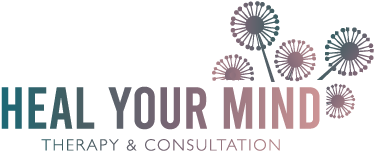Overdoing
As a woman who is pretty good at overdoing, and overachieving at overdoing, I recognize the toll this mindset and pattern of behavior takes on a person. I am a therapist after all, so do as I say, not as I do! As a society, we pride ourselves in our accomplishments on tasks. This is socially reinforced at an early age. We tell children, “Great Job” when they get the solo in the play or an “A” on a spelling test, and we overschedule our kids into every activity they show interest. Our value is determined by our success on tasks. And, there is always the next accomplishment on the horizon waiting to concur.
The cycle of overdoing
This generation of adults are last generation’s overdoing youth, and they are grooming their children to do “all the things”. But, overdoing adults lose all of their own “interests/activities” outside of working and caring and running children to their activities. So, in essence, the adults no longer do any of the enjoyable tasks they spent years and hours overdoing as youth.
Effects on youth
When I am in session with teen clients I hear about their exhaustion, the pressures, and their inability to find balance. They are focused on getting the saxophone solo, making the varsity team, volunteering time, responding and posting on social media, working a part-time job, and keeping a solid GPA. They are trying to balance “priorities” with time spent relaxing with friends and enjoying activities without a purpose.
Effects on adults
To the same extent, the adults share in their exhaustion. Instead, it is from the expectations to work outside of work hours, run children to activities, and plan everyone’s schedules,. All while making it “look easy” on social media. The adults run on empty. They numb to cope with stress because there is no time to devote to the things that once gave them meaning.
Anxiety, Depression, Eating Disorder, and Substance Misuse
When we do not plan for time to be playful and present in the current moment, our well-being suffers. Dopamine, which is a neurotransmitter that elicits a pleasure response, is needed for motivation and energy. Dopamine can decrease when there is no time for proper nutrition, exercise, and mindfulness. Thus, resulting in lowered mood and reliance on unhealthy pleasure center rewards, such as sugar, drugs, alcohol, spending money, and risky sex habits.
Opportunity for change?
The pandemic gave us a brief window into a world where school and work pressures were slightly laxed. We adjusted to online instruction, activities were cancelled, and we spent ample time (maybe too much time) with our co-habitants, roommates, neighbors, and family. This period of “halted/altered” gave us a glimpse of what a slowed down pace and lowered expectations could taste like.
As the 2020-2021 school year began, I wondered if academic and extracurricular expectations would be altered based on the online and hybrid models. Sadly, children were expected to progress at the same speed despite the obvious barrier. As soon as activities could resume, children were again, back at being involved in too many things, just with masks on this time.
Parents were expected to work for home while also teaching, and becoming a behavior specialist, lunch person, and counselor. Our new normal became even less manageable than it had been prior to the pandemic. We are settling into this new way of life. But, we have not learned strategies to shift back in a way that allows us to have the healthy balance we need to thrive. I say often to clients, “Most everything in moderation can be good, with the exception of LSD”. No, but really, LSD should be avoided. If this is true, why do we find it so hard to resist overdoing and allowing our children to overdo?
Breaking the cycle
To answer that question, overdoing is reinforced. Behaviors that are reinforced are behaviors that continue. So, how do we break the cycle? We trust and we allow ourselves to say no to tasks because we trust our abilities and effort will promote success. And, we prioritize time for exercising, meditation, and going out with friends. Evolutionarily, humans are designed to have connection, time outside, and exercise in order to survive. We may have evolved, but these needs have not changed.
Task Focus
Stop creating lists just to get the satisfaction of marking through completions. I know, this one screams resistance, as I am a habitual list-maker. Even writing this makes me cringe a little. However, when we start focusing on the meaning of our tasks (going to the grocery store means I am providing for my family), rather than the task as yet another thing to complete in our day, then we are able to focus on the value of the task. This helps with perspective and prioritizing. When I stay late, I am better able to see this is my tendency to overdo, versus a necessity. My job is secure whether or not I check off each task on that list. Because, in reality, half of the tasks on the list are not MY job duties.
Self-care focus
How do we create change for the next generation where we continue to encourage and support growth in our children, but allow for balance? By praising self-care and expression of needs. Allowing our children more autonomy to say no when they feel overwhelmed, and allowing for necessary breaks. Parents need to remind children to prioritize their tasks based on interests, abilities, and joy. We encourage enjoyment and suffering of all things in moderation, with the exception of a few things. And, we offer support and do not expect them to be independent when that is against human nature.
System Approach
Lastly, we lead by example and model the behaviors we expect. Our children watch the way we take care of our well-being, and core beliefs are often formulated within the family. Embrace balance and talk to your children about how you intentionally structure your day to ensure you prioritize tasks that bring you joy. Set limits to be available and present with our family. Model taking breaks when you are overwhelmed and have nothing left to give. Share about times when you have failed and it has helped you learn and grow. Seek out dopamine in healthy ways, and avoid numbing through sex, sugar, alcohol, drugs, and spending. Lastly, lean in to support and ask for help. The saying, “It takes a village” is not a cliche, it is a way of life.

